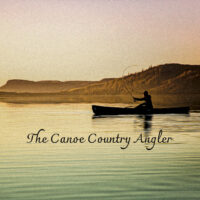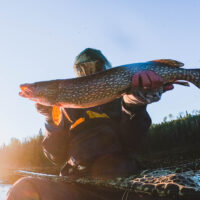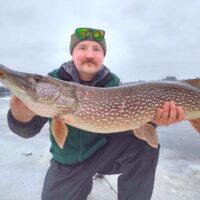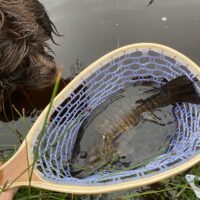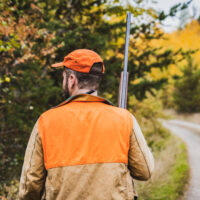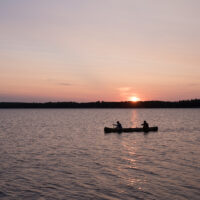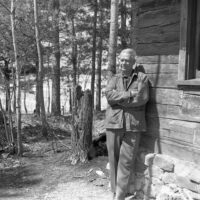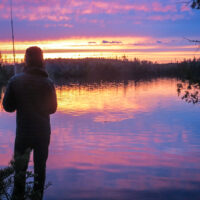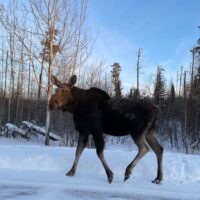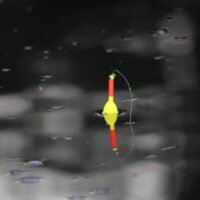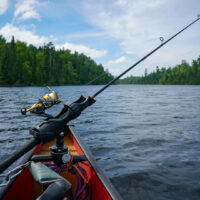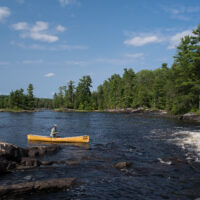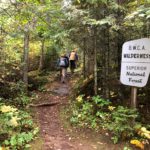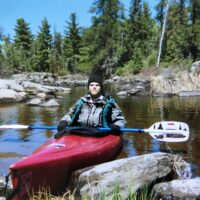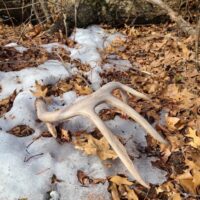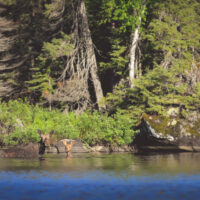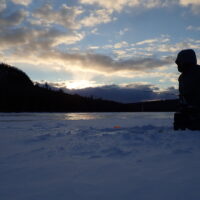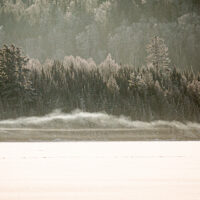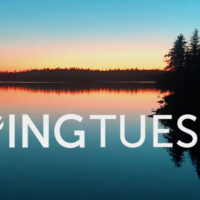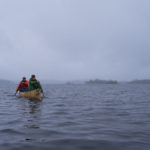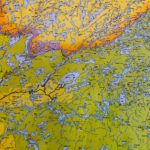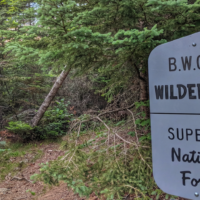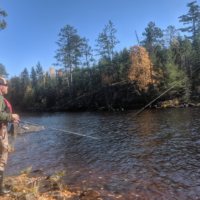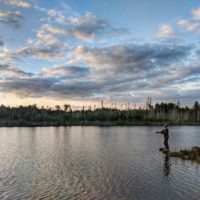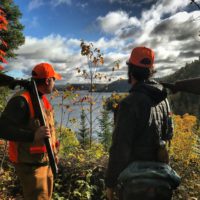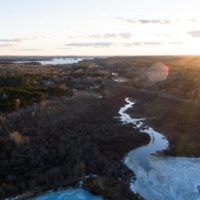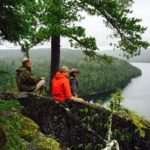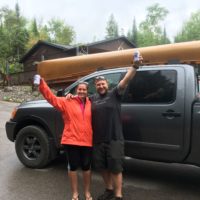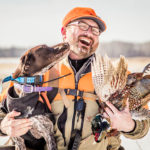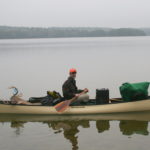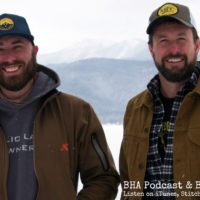Forest Service clarifies dog leash law for BWCA hunters
July 10, 2024 3:14 pmby SFBW staff
On July 10th, 2024, the United States Forest Service released a press statement to address growing concerns regarding new language that would change how people recreate with their dogs in Superior National Forest. Sportsmen for the Boundary Waters and other engaged stakeholders expressed concern that the rule found on the BWCAW FAQ page #16, “Dogs must be always under human control on a 6-foot or shorter leash,” taken as it is, would effectively make hunting birds with dogs impossible.
This is a significant departure from previous years, as the rule formerly stated that dogs could be on a leash or under voice control in these sites. According to Cathy Quinn, Assistant Manager of Wilderness on the Superior National Forest, in a previous Outdoor News Article, this “became problematic during the past four to six years,” citing issues with barking, wandering off, and wildlife encounters, all of which can negatively impact the wilderness experience of the Boundary Waters Canoe Area and its surrounding areas.
Sportsmen for the Boundary Waters quickly became involved in recent weeks, working with the Forest Service to gain as much clarity as possible. “While we recognize taking dogs into the Boundary Waters can present unintended consequences, especially when it comes to family pets not accustomed to the wilderness and the wildlife that live there, we believe the Forest Service’s new rule needs clarifying language around legally using bird dogs inside the Boundary Waters,” Lukas Leaf, Executive Director of SFBW said. “The 1.1 million acres of huntable space in the Boundary Waters presents tremendous opportunities for public land bird hunters to enjoy the backcountry with their bird dogs. Unfortunately, the language of the new official rule creates uncertainty for hunters and gray area for conservation officers enforcing laws. This rule must be written in a way that leaves no uncertainty for hunters intending to legally pursue ruffed grouse, spruce grouse, woodcock, and waterfowl species inside the BWCA.”

In the July 10th release, Cathy Quinn again clarified, “With respect to hunting, if you are participating in an active hunt, you can have your dog off-leash. If you are engaged in an active hunt and you’re out with a hunting dog that’s going to retrieve birds or point birds, you can have your dog off-leash.” The Forest Service’s press release went on to clarify further with 5 FAQs about bringing your dogs into Superior National Forest:
Does the Superior NF have a “leash law?”
The following is prohibited within Developed Recreation Sites under 36 CFR 261.16J: Bringing in or possessing an animal, other than a seeing eye dog, unless it is crated, caged, or upon a leash not longer than six feet, or otherwise under physical restrictive control.
In addition, the Boundary Waters Canoe Area Wilderness rules and regulations state: “Dogs must be on a 6-foot leash or shorter at all times. Dogs can endanger wildlife and barking intrudes on the experience. Dispose of dog waste 200 feet from water, campsites, portages, or put it in a latrine. Annually, visitors lose dogs within the BWCAW due to a run-away or wildlife encounter, please follow the law to protect your dog and wildlife.”
What is the legal consequence, if any, if someone is in the Superior NF including BWCA Wilderness and does not have their dog on a 6-foot leash or shorter? (a ticket, fine, asked to leave the wilderness, etc.?)
The minimum fine is $50.
Did a Superior NF official recently change or adjust the language in the “leash law?”
No. We recently included the official language from the regulation that has been in existence for many years across the Nation, on the Superior NF and also visible on the back of BWCAW permits to provide clarification. In recent years we have received feedback from the public, recreation managers, and wilderness rangers regarding dogs “misbehaving” on trails, portages, and campsites not just in the BWCAW, but in other areas of the Superior National Forest. In sharing the official language from the code of federal regulations we hope to raise awareness and educate visitors regarding responsible dog handling while visiting a National Forest.
Does the leash law for dogs apply to duck hunters and grouse hunters in the BWCAW?
Hunting with a dog off-leash is allowed if taking place outside of developed recreation sites (campsites, campgrounds, boat landings, portages, trailheads, etc.). If on a designated trail, hunters may have dogs off-leash while actively engaged in hunting. Remember, if hunting on a trail, you can only shoot away from the trail corridor, not down or across a trail.
Does a dog need to be on a leash while in a canoe or in the water in the BWCA wilderness?
No, a dog only needs to be on a leash in a developed recreation area such as a campsite, portage, trail, picnic area, or fishing pier.
In response to today’s press release, Sportsmen for the Boundary Waters stated in the most recent Outdoor News article, “We’re very appreciative to have an open line of communication with the U.S. Forest Service on a wide array of issues, including this dog leash rule. This added clarity will reduce ambiguity for hunters and Forest Protection Officers during the Minnesota hunting season. We look forward to working with the USFS as they update the existing BWCAW educational materials to reflect the new interpretation of the dog leash rule released today.”
While the Forest Service’s acknowledgment of the exclusion of hunting dogs from the leash law during active hunts is tremendously important, it will be crucial that they include this language in print and digital materials for all dog owners on their way to Superior National Forest with their four-legged companions.
Additionally, there are a multitude of dog-using stakeholders who recreate in the Superior National Forest who currently do not have clarification from this latest Forest Service interpretation of the dog leash law. Moving forward, we will continue to engage other groups and the US Forest Service to ensure everyone’s voice is heard.
In the meantime, consider checking in at your respective USFS Ranger Station to get clarification on the latest regulations and policies before setting off on your next trip. Stay updated through SFBW as we work to ensure our hunting traditions are preserved for years to come in the BWCA and surrounding areas.
















